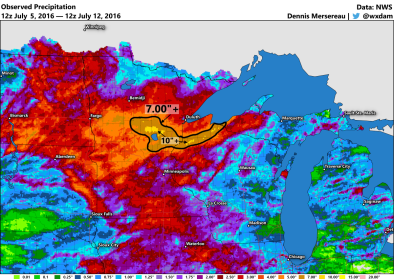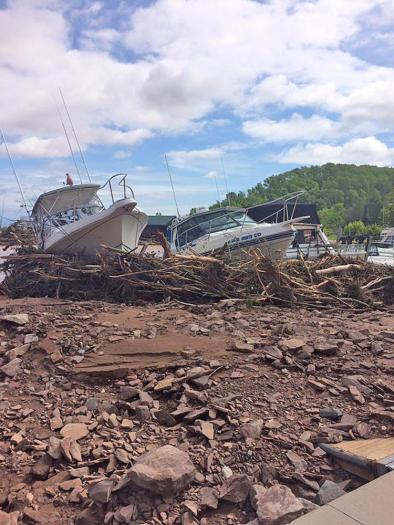How Heavy Flooding Can Damage Drinking Water Quality

Despite bordering Lake Superior, northwestern Wisconsin overwhelmingly relies on groundwater for its drinking water supply. About 25 percent of Wisconsinites get their drinking water from private groundwater wells, which are especially predominant in more rural areas. Unlike public utilities, private wells aren't subject to similar regulations at state and federal levels, and their owners bear the responsibility for the monitoring and ensuring the quality of their water.
...
Contaminants like bacteria and nitrate flow from the surface into groundwater supplies from farms, septic systems and other sources, aided by rain and simple gravity. A sudden downpour like the 10-inch flash flood that inundated northwestern Wisconsin on July 10 only speeds up that process. The Wisconsin Department of Natural Resources warned in a press release that "well owners who observe flooding or changes in their water should assume their wells are contaminated," but wells in areas that don't show obvious signs of flooding could be in danger too
Related Content




